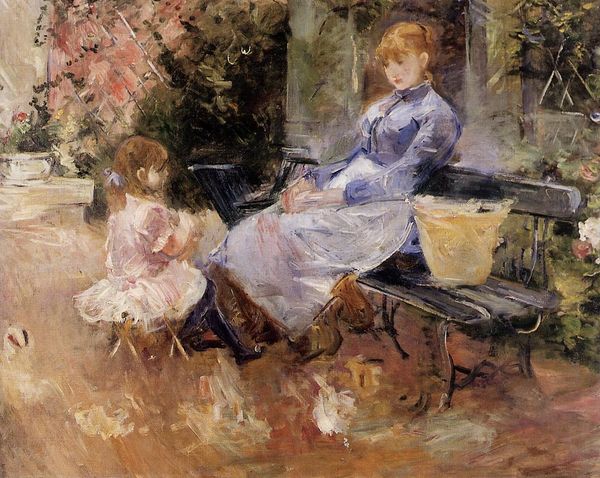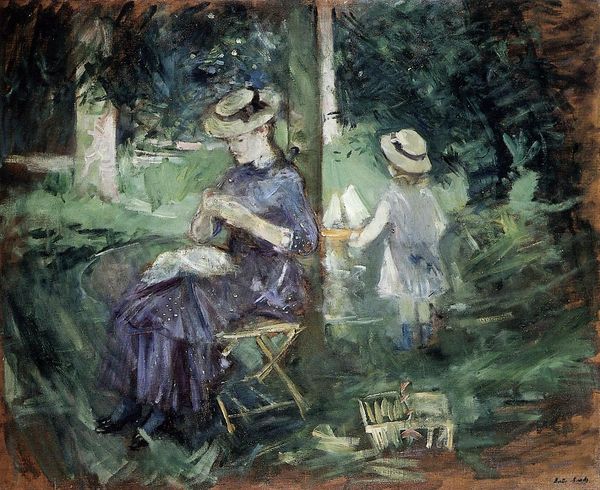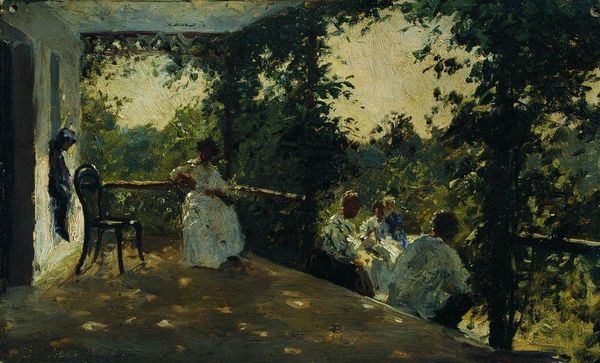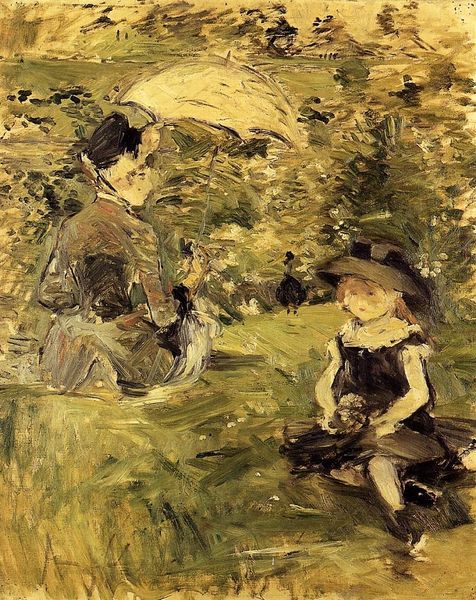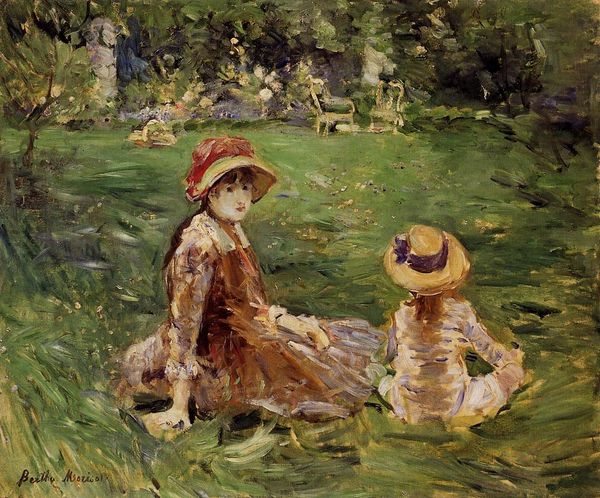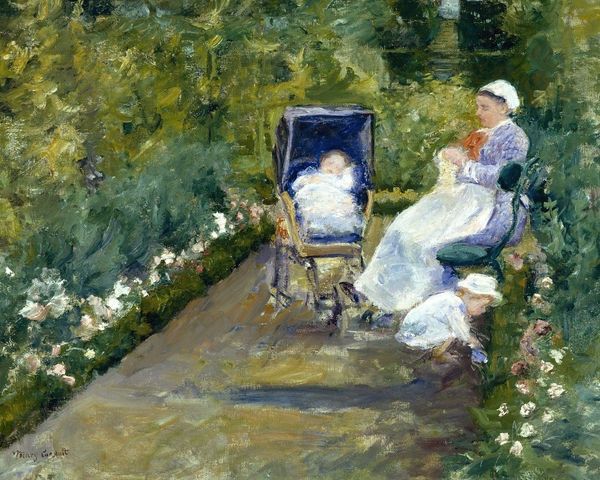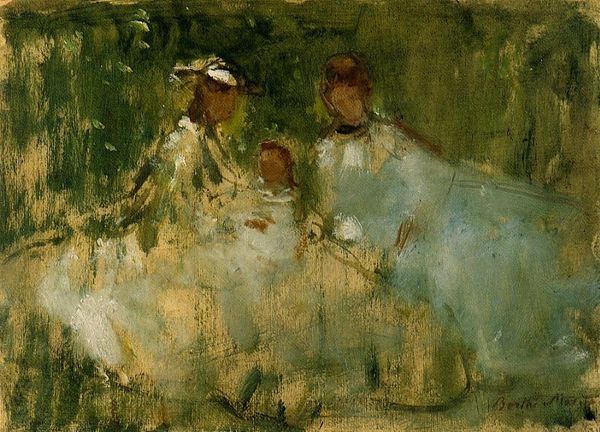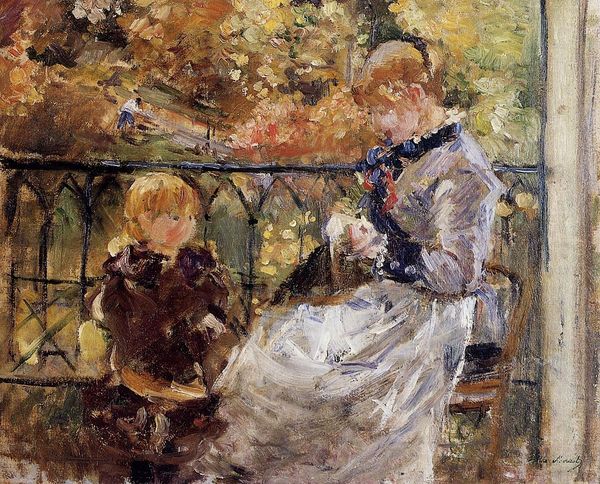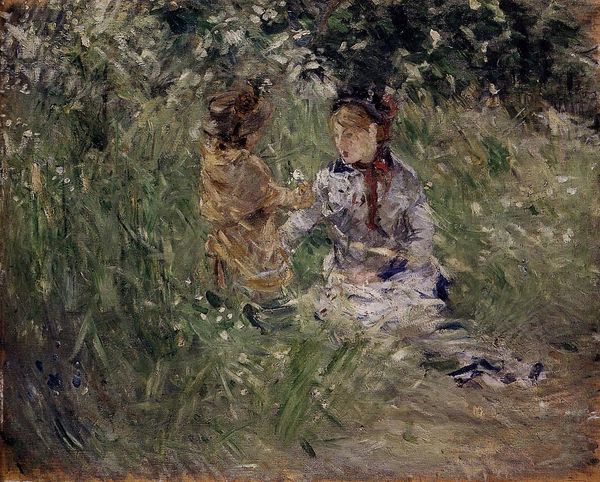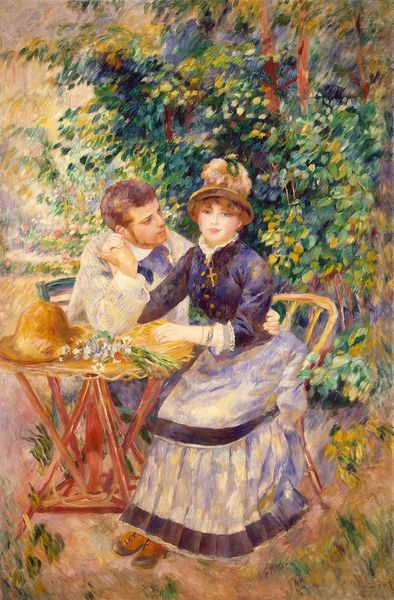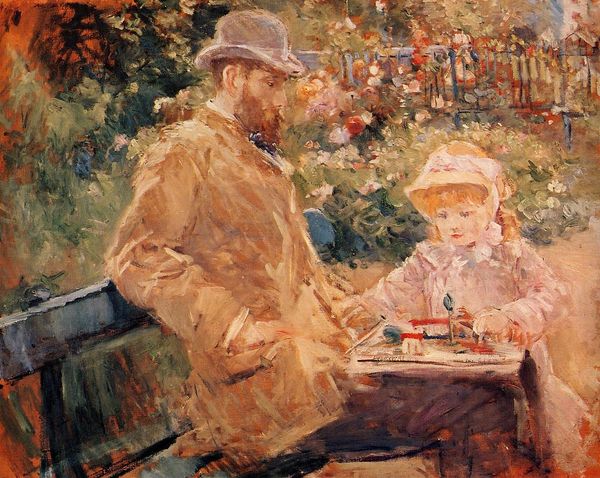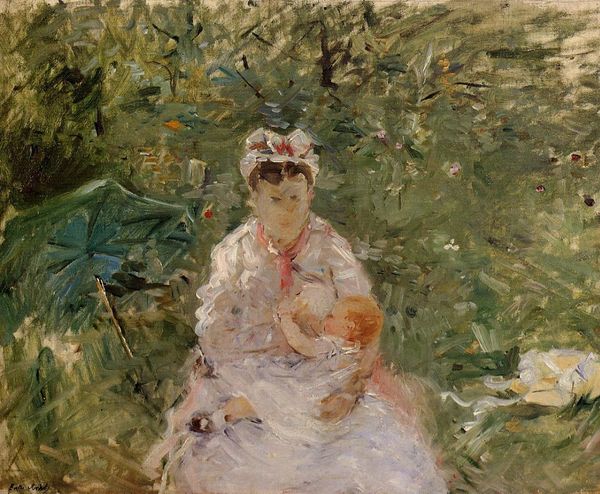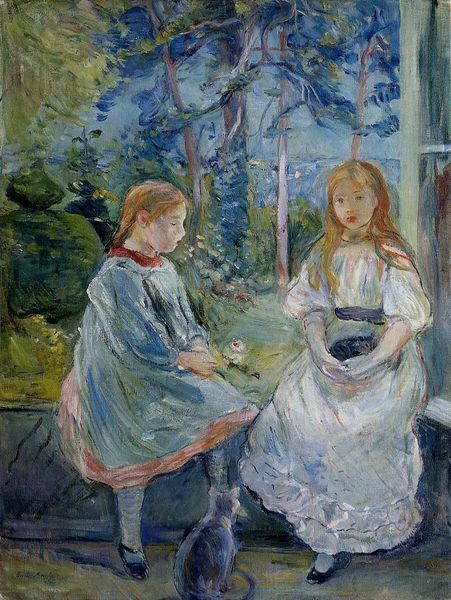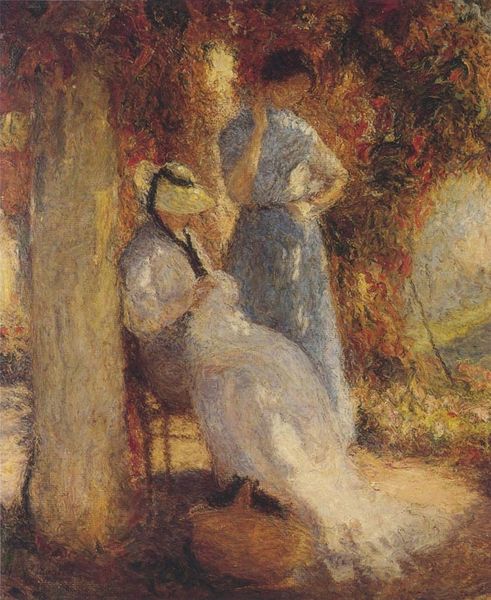
painting, plein-air, oil-paint
#
portrait
#
tree
#
garden
#
painting
#
impressionism
#
plein-air
#
oil-paint
#
landscape
#
impressionist landscape
#
oil painting
#
forest
#
intimism
#
group-portraits
#
france
#
painting painterly
#
park
Dimensions: 54 x 65 cm
Copyright: Public domain
Curator: So serene! This artwork titled "In the Garden" by Berthe Morisot, created around 1885, whispers peace and intimacy. It’s currently held in a private collection. Editor: Peace, yes, but also a kind of melancholy. Look at the brushwork – loose, almost dissolving the figures into the garden. It's less a portrait, more an impression of a moment slipping away. Curator: Precisely! Morisot was instrumental in Impressionism, showcasing domestic scenes and landscapes en plein air. These were spaces historically considered feminine, so her focus on them challenged the dominant artistic narratives. The garden becomes a space for female companionship and contemplation. Editor: It also strikes me how the women, especially the child, blend in tonally with their setting – their clothing, too. The composition blurs lines, just like memories. There's a poignancy here; a visual metaphor perhaps for a childhood disappearing. Curator: I think you've hit on something essential about Intimism as well, how private moments reveal greater truths. Art historians frequently point to her nuanced portrayal of light and the psychological depth achieved in what may, on the surface, appear like casual portraits. We should also recall how her position was quite singular within a male-dominated Impressionist circle. Editor: There’s a real contrast with some of her male counterparts. Where they were often celebrating modernity and urban life, Morisot often finds beauty and meaning in quietude and connection. Look at that almost obscured expression on the child’s face! What's she thinking? What story does she carry? Curator: The very act of choosing these subjects elevated their value in the art world and broader society. Her work asks us to reconsider the historical marginalization of women’s experiences. I am curious if modern-day audiences ponder these same concepts while standing before this art. Editor: Maybe, maybe not. I just love how she captured the fragility and beauty of an ordinary afternoon. That whisper of impermanence. What really *lasts* when it's gone? Curator: I completely concur with that observation, a remarkable painter! Hopefully this dialogue encourages our listeners to think a bit more deeply about Morisot’s contributions. Editor: Indeed. Hopefully listeners connect with the feeling Morisot captured in the act of portraying everyday life with such quiet sensitivity.
Comments
No comments
Be the first to comment and join the conversation on the ultimate creative platform.
